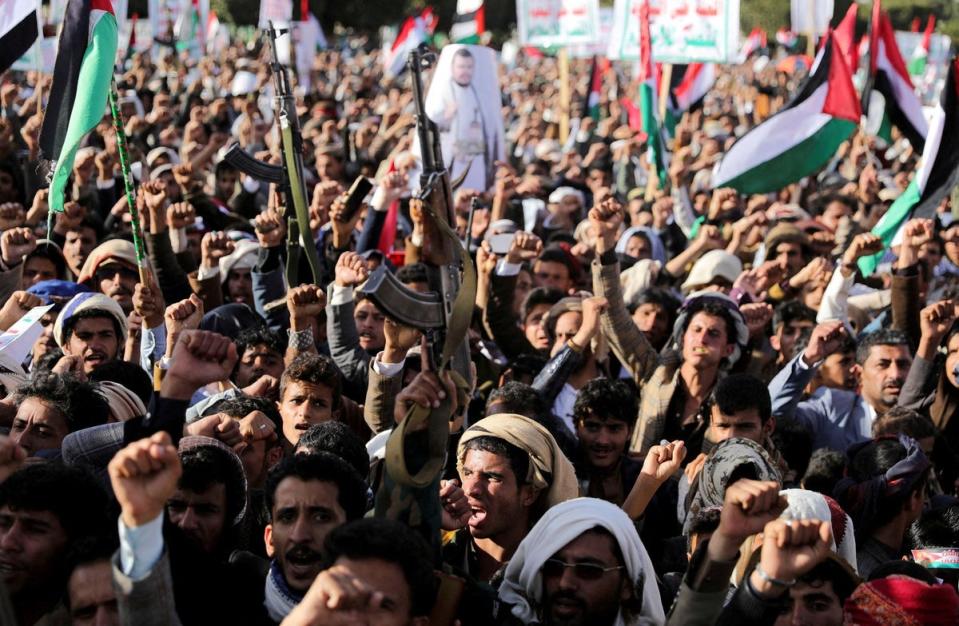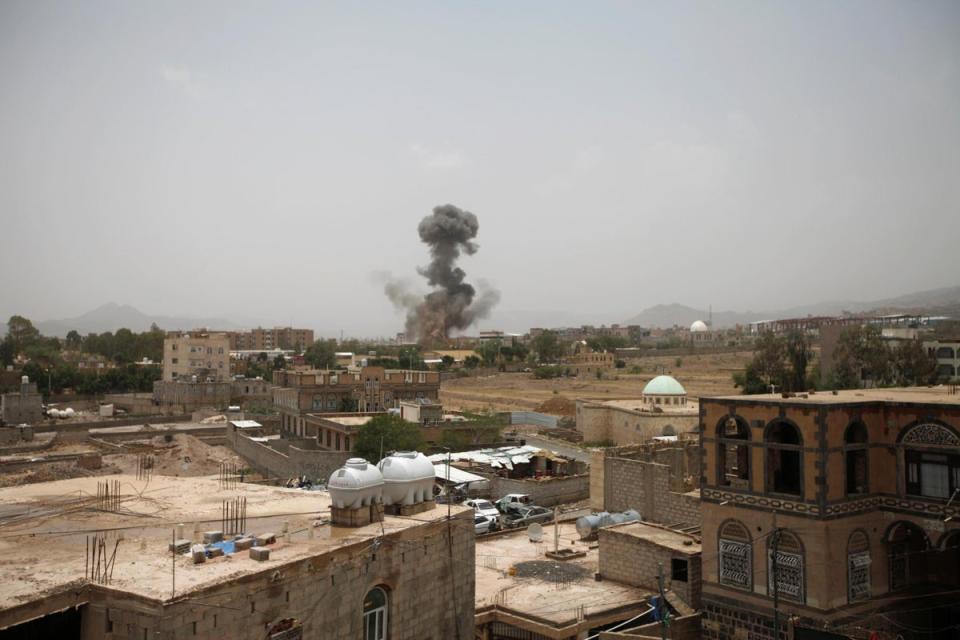UK aircraft carrier ‘at readiness’ to head to Red Sea conflict zone, says minister

British aircraft carriers are "at readiness" to go to the Red Sea if they are needed to support further action against Houthi rebels in Yemen, according to defence minister James Cartlidge.
The MP told GB News: "I'm pleased to confirm both our carriers are in Portsmouth, they are at readiness and they are available to be deployed if needed, if the operational decision is that that is the appropriateresponse.
He said one of the carriers, Queen Elizabeth, only returned eight weeks ago from "13,000 nautical mile mission to the North Sea and the Baltic Sea".
The ship, whose 280-metre-long flightdesk can carry 72 aircraft, usually has a crew of 679 but can accomodate up to 1,600 personnel including air crew and Royal Marines.

He said "further action" against the rebels, who have been targeting shipping in the Red Sea, had not been ruled out "if it was justified" but said the recent airstrikes were "proportionate" and "justified under international law".
British jets joined US warplanes, ships and submarines to launch dozens of strikes in retaliation for attacks on Red Sea shipping, which the Iran-backed group says is a response to the war in Gaza.
Yemen's Houthis said more U.S. aircraft were observed flying close to Yemeni airspace and coastal areas on Sunday.
Their spokesman Mohammed Abdulsalam described the activity by "enemy" aircraft as a blatant violation of national sovereignty.

Foreign Secretary Lord Cameron denied the RAF strikes would escalate the crisis in the Middle East, as he warned the world faces a period of great peril.
The Foreign Secretary insisted it was the Houthi rebels who had taken steps to escalate conflict in the region with their attacks on container ships passing through the Red Sea, as he hinted the UK could join further strikes in future.
The militant group, which backs Hamas, claims they have targeted ships with links to Israel.
Lord Cameron suggested the RAF could join the US in further strikes against the Houthis in order to deter their attacks.
“It’s right we’ve sent this very clear, very unambiguous message that we are prepared to follow our words and warnings with actions,” he said.
Describing U.S. and British strikes as an act of stupidity, Hezbollah leader Sayyed Hassan Nasrallah said the Houthis would continue targeting ships belonging to Israel and going to its ports.

"The more dangerous thing is what the Americans did in the Red Sea will harm all maritime navigation, even the ships that are not going to Palestine, even the ships which are not Israeli, even the ships that have nothing to do with the matter, because the sea has become a theatre of fighting, missiles, drones and war ships," he said.
"Security has been disrupted."
Iranian president Ebrahim Raisi condemned the airstrikes which he said were proof of the "aggressive" approach of the US.
They come as the war between Israel and Hamas, which reached the 100 day mark on Sunday, showed no sign of stopping.
Hamas spokesman Abu Ubaida said "several parties in resistance fronts" had vowed to "expand their strikes on enemy in the coming days".
He also said the fate of many Israeli hostages has become unknown.
In his first televised appearance for several weeks, Abu Ubaida said many of them "may have been killed" and added "any talks before stopping the Israeli aggression are worthless".
The October 7 attack into Israel by Hamas killed more than 1,200 people, the biggest single day loss of life since the founding of the state of Israel in 1948.
The attackers seized 240 hostages and took them to Gaza.


